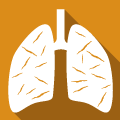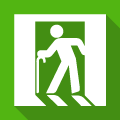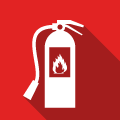Online Safety Training Courses
Why Online? You would think that one-on-one training would cost a fortune and be time-consuming to organise. Well, it isn't! With Kylefire’s interactive online training goes at precisely the pace required by each individual. These courses are an effective way of learning new skills or updating existing ones including Fire Safety and are perfect for individuals or businesses looking to train their workforce. At a fraction of the cost and fraction of the management time you would expect, this training has the added bonus of a minimal loss of productivity because it's really efficient and flexible.
FREE TRIAL Candidate Login Business LoginAbrasive Wheels Training
This course is aimed at anyone who uses abrasive wheels, or employs people who use abrasive wheels as part of their work. It covers different types of AW, safety in their use and how to identify the type of wheel.
Achieving Food Hygiene - Level 5
This course is intended to give you an overview of how the National Food Hygiene Rating Scheme works, what the scoring criteria are and how these are assessed by the inspectors, the appeals process, the Safer Food Better Business management system, E-Coli and concludes with some practical advice for ensuring your premises gets the best score possible.

As well as informing you about the risks of working with asbestos, the course will deliver a lot more information about: Recognising asbestos, where it's used, minimising the risks and the legislation about working with asbestos. This course is a variation on the Asbestos Awareness course that contains specific information for designers and architects.
BUY NOWAsbestos Awareness for Architects & Designers
As well as informing you about the risks of working with asbestos, the course will deliver a lot more information about: Recognising asbestos, where it's used, minimising the risks and the legislation about working with asbestos. This course is a variation on the Asbestos Awareness course that contains specific information for designers and architects.
Asbestos Awareness
As well as informing you about the risks of working with asbestos, the course will deliver a lot more information about: Recognising asbestos, where it's used, minimising the risks and the legislation about working with asbestos.
Assessing Display Screen Equipment
This course is aimed at companies who employ users of display screen equipment, or DSE as it's often called and is intended to be completed by those who will be assessing the DSE set ups of employees. DSE is a term that covers a wide range of equipment. If equipment like this is not set up correctly, users are at increased risk from certain disorders.
Basic Fire Safety for Care Homes
This course explains, in brief, why fires occur and what actions you must take to help prevent them starting and the actions you must take when they do. By completing this course you will be making your workplace a safer environment. This course is a variation on the Basic Fire Awareness course that contains information that is specific to employees of care and residential homes.
Basic Fire Safety
This course explains, in brief, why fires occur and what actions you must take to help prevent them starting and the actions you must take when they do. By completing this course you will be making your workplace a safer environment.
Basic Legionella
Explaining the background to Legionella and Legionnaires' Disease, the potential risks associated with water systems and how these can be prevented or controlled.
Control of Substances Hazardous to Health (COSHH)
This course covers what you need to know about the Control of Substances Hazardous to Health. It's aimed at anyone who is exposed to Substances Hazardous to Health at work, as well as line managers with responsibility for such people.
Display Screen Equipment Awareness
This course is aimed at users of display screen equipment, or DSE as it's often called. DSE is a term that covers a wide range of equipment. If DSE equipment like this is not set up correctly, users are at increased risk from certain disorders. As an employee, you share the responsibility to keep people safe at work. That means undergoing relevant training and ensuring that rules are followed.
Emergency First Aid at Work - Annual Online Refresher
This Emergency First Aid Refresher course will highlight some of the most common situations that you might come across and the actions that you can take to help.
Fire Extinguisher
Learn how to identify the different types of fire extinguishers that might be installed within your workplace and what situations they might be used in. At the end of the final module you will be presented with a simulation that will test what you've learnt.
Fire Marshall for Care Homes
The main outcome of this training course is to provide you with the knowledge to carry out the functions of a fire marshal. - Please note, this course also contains all of the content in the Basic Fire Awareness and Fire Extinguisher courses. This course is a variation on the Fire Marshal course that contains information that is specific to employees of care and residential homes.
Fire Marshall - RoSPA Approved
The main outcome of this training course is to provide you with the knowledge to carry out the functions of a fire marshal. - Please note, this course also contains all of the content in the Basic Fire Awareness and Fire Extinguisher courses.
Level 1 Food Safety - Catering
Food safety combines a number of practices to reduce health hazards. These include premises hygiene, personal hygiene, risk control, pest control and waste management. This level 1 course is about minimising the level of potential hazards in a food catering setting.
Level 2 Food Safety - Catering
Food safety combines a number of practices to reduce health hazards. These include premises hygiene, personal hygiene, risk control, pest control and waste management. This level 2 course is about minimising the level of potential hazards in a food catering setting.
Level 1 Food Safety - Manufacturing
Food safety combines a number of practices to reduce health hazards. These include premises hygiene, personal hygiene, risk control, pest control and waste management. This level 1 course is about minimising the level of potential hazards in a food manufacturing setting.
Level 2 Food Safety - Manufacturing
Food safety combines a number of practices to reduce health hazards. These include premises hygiene, personal hygiene, risk control, pest control and waste management. This level 2 course is about minimising the level of potential hazards in a food manufacturing setting.
Level 1 Food Safety - Retail
Food safety combines a number of practices to reduce health hazards. These include premises hygiene, personal hygiene, risk control, pest control and waste management. This level 2 course is about minimising the level of potential hazards in a food manufacturing setting.
Level 2 Food Safety - Retail
Food safety combines a number of practices to reduce health hazards. These include premises hygiene, personal hygiene, risk control, pest control and waste management. This level 2 course is about minimising the level of potential hazards in a food retail setting.
Manual Handling - Approved by IIRSM & CPD
Manual handling covers a wide range of activities and incorrect manual handling is one of the most common causes of injury at work. The nature of the load itself doesn't matter if you have to use your muscles, then it's manual handling and, well, you're in danger.
Positive Handling in Schools
This course will start by looking at some examples and statistics which highlight the seriousness and extent of aggressive pupil behaviour, it will then go on to explain how you can identify the stages of aggression and provide some tips on how you could de-escalate a pupil before they lash out. It also looks at where the law stands on this subject and finally best practice in theory if you ever do need to restrain a pupil.
Prevent Duty
This course starts with an overview of the Government's Prevent strategy, and then looks at some of the reasons people become extremists. It goes on to cover the objectives of the Prevent strategy, how to base your actions on a risk based approach, what to do if you are concerned and much more.
Safeguarding Children
Safeguarding is a term that describes the work and processes undertaken to minimise and manage the risks involved to vulnerable children. During this training video you will hear many facts, figures and details surrounding the risk to children, the types of abuse suffered, how to recognise the signs of abuse and key safeguarding legislations put in place to minimise the abuse of children.
Safeguarding Adults
This course is aimed at anyone who has a duty of care for, or comes into contact with, adults in need of care and support, either as a paid professional or a volunteer. You and the organisation you work for must take appropriate measures for the protection of adults in your care, while still ensuring they are supported and empowered. This course can bring you one step closer to being able to do this.
Working at Height
This course is aimed at anyone who undertakes work at height, or who employs people who regularly work at height. It covers what constitutes work at height, the safety issues, and how to assess and reduce some of the risks.
Working Safely
Working safely is in the interest and concern of all staff - both the employers and employees. Workers have an expectation to go home at the end of the working day not having been injured - or having had their health affected by - any workplace activity, or as a result of it.
- 30 years' industry experience
- Family run business, established in 1982
- Same day call outs
- Extensive range of fire safety products


























